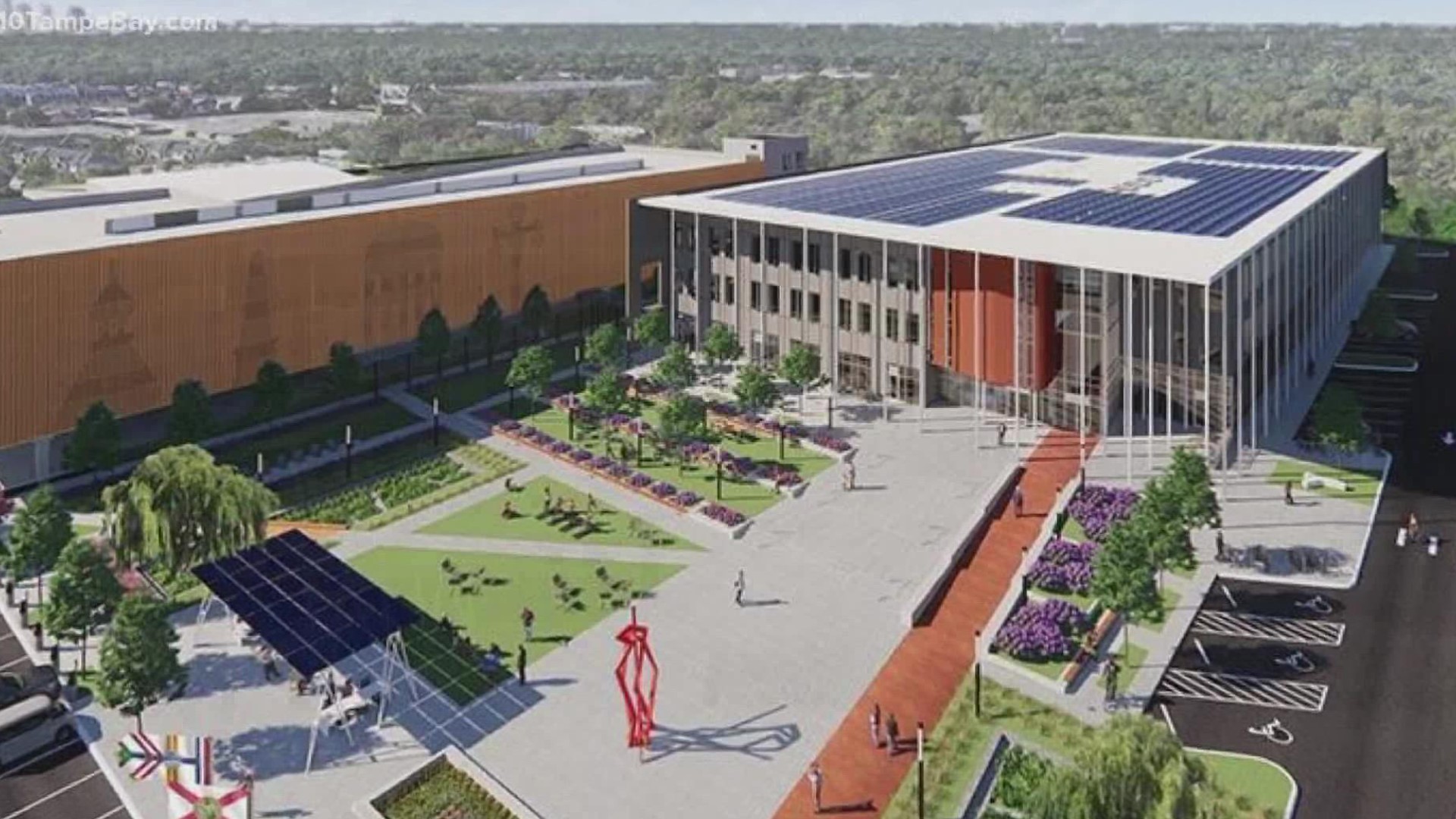TAMPA, Fla. — At 161,000 square feet and $108 million, a plan to move hundreds of jobs and build a new city center on Hanna Avenue in East Tampa is expected to breathe new life into a majority-minority area that has struggled to attract development.
However, contractors and engineers allege the city made a series of missteps and awarded the contract without allowing other companies to fairly compete for the job.
“Is this public corruption at its finest?” said Joe Robinson, an independent engineer who says the community deserves more answers on the hefty contract awarded to DPR Construction for the Hanna Avenue project.
To understand how the city got here, with hundreds of millions of taxpayer money, a look to the past is key.
In 2015, the city decided to renovate some old buildings on East Hanna for about $10 million. This plan also would have included relocating three city departments: Office of the City Clerk’s Archives and Records Service, Technology and Innovation Department’s Data Center and the Tampa Police Department’s Impound and Property Logistics division.
Per standard operating procedure, the city put out a request for qualifications and eventually awarded DPR the job. The company received $1.2 million for design, but renovations went on hold, so the company did not receive the rest.
A city spokesperson said in an email former Mayor Bob Buckhorn put the project on hold because funding was not available. The project resumed under the Castor Administration, although DPR verbally recommended demolition and rebuild sometime between 2015 and 2016 because the building was outdated with lead and asbestos, the city said.
Fast forward to March 2021. The project comes up again with city council approving an amendment to the original contract.
DPR received an additional $6,252,882 “for additional design-build services.” City documents show the amendment also included “costs for demolition of the existing buildings and infrastructure to prepare the site for new construction.”
In October 2021, the project ballooned to $101,112,026. The city’s infrastructure department sent a memo alerting the city council of an upcoming meeting to approve the funds for DPR. The project now includes new construction and relocation of 11 city departments instead of just three.
On Nov. 4, the city council approved it unanimously.
“This needs to be vetted,” said Robinson during a city council meeting on Jan. 13. “It was purely almost unethical as an engineer to have a scope go from $10 (million) to $100 million and no competitive selection..."
The change in cost and scope makes it an entirely new project, and the city should have issued a new RFQ to allow for robust competition, Robinson said.
However, Robinson, and other contractors who raised concerns to the city, said this never happened.
A spokesperson for the city said there is no new project, and that it evolved from the original project design that began in 2015. The spokesperson also said the city has followed all rules for the process--specifically Florida Statute 287.055 Consultants' Competitive Negotiations Act (CCNA). "Competitive selection is important on all projects," a city spokesperson said in an email.
Robinson disagrees that the city followed all rules.
“They’re saying it’s all legal. Please provide the legal opinion from the city attorney that shows that this process was totally [legal],” Robinson said.
City Council Chairman Orlando Gudes said he has requested city staff to prepare a report regarding the issues Robinson and others have raised.
“…We've asked staff to answer those questions that the community has asked. People who are in the construction industry who know what the rules and regulations are,” Gudes said. “I don't know all the rules and regulations. So, me not being a person [who] knows all the rules, I've got to be a fact finder. Find out what's wrong, what's right. If we did things right, good. If we did things wrong, okay, let’s fix those things that we did wrong.”
Gudes said he voted to approve the contract last year because he thought it was a good investment in the East Tampa community, and hoped it would spur development and hope in an underserved area that is home to a large portion of the city’s African American population.
“…I made sure when I voted, I was stern with the administration that I wanted to see a robust number of African Americans working on that project because you’re working in the American community. And that was a stern word I said on my vote making sure that we have that process in place,” Gudes said.
Gudes said he learned minority involvement was not as thorough as he felt it should be but said the city is implementing changes.
After Robinson and others raised concerns before city council, the city said on Monday it plans to hire “a designated advocate” to make sure the project has a 35 percent participation of African-Americans and other minority/small businesses.
Robinson also alleges minority subcontracting documents in the original 2015 contract was incorrect and outdated, which he says could challenge the entire contract's validity.
Robinson said highlighted the 50/50 split in the contract between DPR and the City of Tampa for any amount not spent. He said that could leave room for taxpayer waste.
Gudes said he expects answers to the litany of concerns on March 3 when city council again addresses the Hanna Avenue project.

